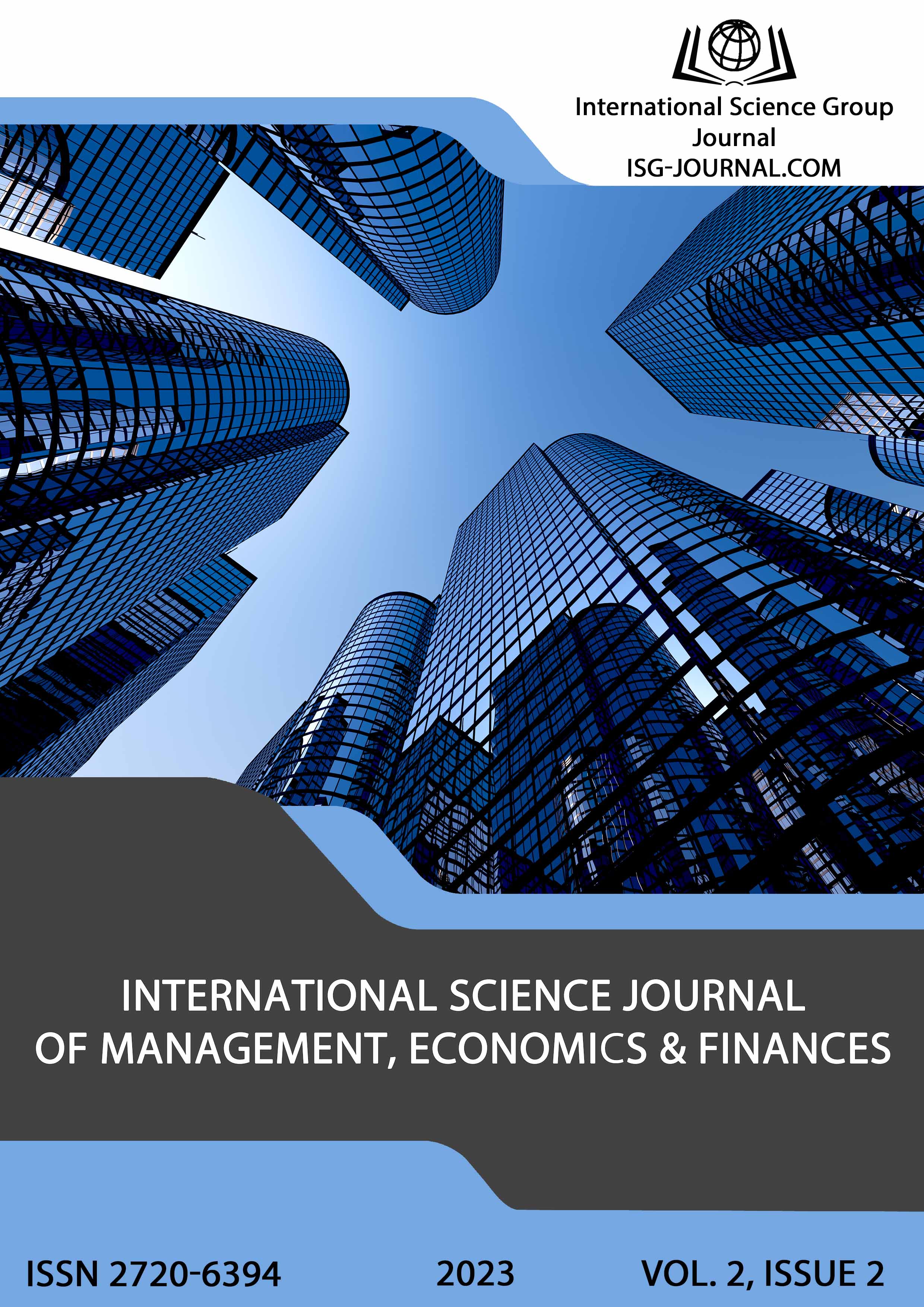Creation of a new type of educational-scientific- production complex in the context of the concept of sustainable development
DOI:
https://doi.org/10.46299/j.isjmef.20230202.09Keywords:
sustainable development, education, research, innovations, educational-scientific-production complex, continuous learning, vertical integration in the education system, consortiumAbstract
The article argues for the relevance of developing an integrated network model for managing educational institutions based on sustainable development. This approach combines vertical and horizontal mechanisms of interaction among participants and ensures the achievement of sustainable development goals. The analysis of existing research revealed a lack of unified approach to the formation of conceptual provisions for sustainable development in educational institutions. Therefore, the study substantiates the need to create a new type of educational institution. The study has formulated conceptual provisions for the creation of a new type of educational-scientific-production complex (ESPC) based on the vertically integrated education system formation in the context of the sustainable development concept. It has identified the goals and tasks of the "green" ESPC formation, the main principles of operation, and the directions of its activity. The study proposed a model of the ESPC system's activity based on the imperatives of sustainable development, which includes four areas of activity: educational, scientific, entrepreneurial and innovative. Additionally, a scheme for the step-by-step training of a specialist in the educational-scientific-production complex was formed from the viewpoint of continuous learning. As a result, it was determined that the merger of institutions of higher, pre-higher, and professional education should be carried out within the framework of a consortium. The study also considered the main areas of the ESPC Consortium activity and the structure of its management.
References
Хаустова, В.Є., & Омаров, Ш.А. (2018). Концепція сталого розвитку як парадигма розвитку суспільства. Проблеми економіки, (1), 265-273.
Ключко, В.Г. (2012). Сталий розвиток як концепція суспільного прогресу. Вісник Харківського національного університету імені В.Н. Каразіна, (1011), 19-25.
Drexhage, J., & Murphy, D. (2010). Sustainable development: from Brundtland to Rio 2012. United Nations Headquarters, New York, 1-26.
Организация Объединенных Наций. Экономический и Социальный Совет. Европейская экономическая комиссия. (2005). Стратегия ЕЭК ООН для образования в интересах устойчивого развития. Материалы Совещания высокого уровня представителей министерств охраны окружающей среды и образования (Вильнюс, 17–18 марта 2005 года). URL: http://www.unece.org/env/documents/2005/cep/ac.13/cep.ac.13.2005. 3.rev.1.r.pdf.
UN General Assembly. 2nd Committee. (2017). Education for sustainable development in the framework of the 2030 Agenda for Sustainable Development: draft resolution, submitted by the Vice-Chair of the Committee, Kimberly Louis (Saint Lucia), on the basis of informal consultations on draft resolution A/C.2/72/L.24. URL: https://digitallibrary.un.org/record/1318978
Ляшенко, О.М. (2020). Сталий розвиток закладів вищої освіти: локальні інформаційно-комунікативні аспекти. Вчені записки Університету «КРОК», 2(58), 97-102.
Висоцька, О.Є. (2012). Випереджаюча освіта для сталого розвитку: методологія, методика, технології: навчально-методичний посібник. Дніпропетровськ: Видавництво «Акцент ПП».
Хмелевська, О.М. (2018). Освіта для сталого розвитку: зміст та інституції. Демографія та соціальна економіка, (1), 29-42.
Коренева І. М. (2018). Особливості освіти для сталого розвитку у зарубіжних країнах: регіональний аспект. Web of Scholar, 4(22), 14-22.
Wolff, L.-A., Sjoblom, P., Hofman-Bergholm, M., & Palmberg, I. (2017). High Performance Education Fails in Sustainability? A Reflection on Finnish Primary Teacher Education. Education Sciences, 7, 32. doi: 10.3390/educsci7010032
Global Education Monitoring Report Team. (2016). Education for people and planet: creating sustainable futures for all. UNESCO.
Faure, E., Herrera, F., Kaddoura, A. R., Lopes, H., Petrovsky, A. V., Rahnema, M., & Ward, F. C. (1972). Learning to be: the world of education today and tomorrow. UNESCO Director-General, 1962-1974 (Maheu, R.).
Боярська-Хоменко, А. В. (2021). Освіта впродовж життя як основа сталого розвитку європейського суспільства. Теорія та методика навчання та виховання, 50, 9-18.
Yatsenko, V. (2021). Social responsibility of the educational ecosystem of a higher education institution under conditions of structural and innovative change. Менеджмент, 1(33), 32-42.
Скиба, М. (2020). Стратегічні пріоритети та цілі Стратегії розвитку системи вищої освіти України до 2031 року. Електроний ресурс Uifuture. Український інститут майбутнього. URL: https://uifuture.org/publications/strategichni-priorytety-ta-czili-strategiyi-rozvytku-systemy-vyshhoyi-osvity-ukrayiny-do-2031-roku/
МОН України. (2020). Стратегія розвитку вищої освіти України на 2021-2031 роки. URL: https://mon.gov.ua/storage/app/media/rizne/2020/09/25/rozvitku-vishchoi-osviti-v-ukraini-02-10-2020.pdf
Downloads
Published
How to Cite
Issue
Section
License
Copyright (c) 2023 Ірина Федотова, Оксана Дмитрієва

This work is licensed under a Creative Commons Attribution 4.0 International License.






